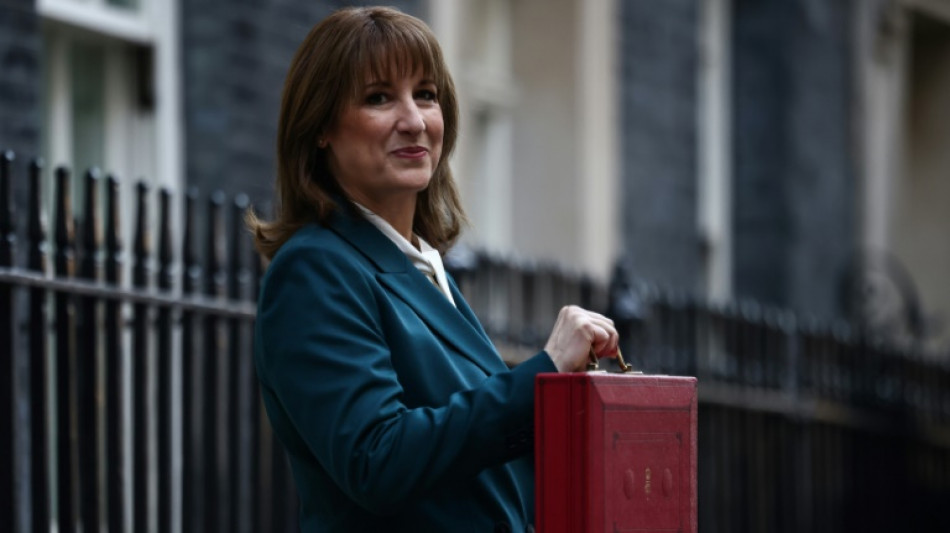

UK tax-raising budget pleases markets despite growth downgrades
Britain's government unveiled a tax-raising budget Wednesday welcomed by financial markets, as its hard-hitting action aims to slash state debt as well as fund public services.
After finance minister Rachel Reeves boosted Labour's budget headroom by £22 billion ($29 billion), the pound gained strength versus the dollar and euro, while UK government bond yields lowered.
Markets appeared to look past the government's downgrades to British economic growth, from next year until the end of 2029, in data released alongside the annual budget.
- 'Stable economy' -
"My choices are a budget for fair taxes, strong public services, and a stable economy," Reeves told parliament Wednesday, as Britain faces a £20-billion gap in public finances.
Ahead of the budget, Prime Minister Keir Starmer vowed to reduce waiting times for the state-funded National Health Service and ease a prolonged cost-of-living crisis, hoping to strengthen Labour's appeal as hard-right Reform UK gains momentum in the polls.
"By doubling her fiscal headroom from last year, she may have saved her job and bought the government more time," said Kathleen Brooks, research director at trading group XTB.
Reeves raised taxes on businesses in her inaugural budget 13 months ago -- a decision widely blamed for causing weak UK economic growth and rising unemployment.
She returned on Wednesday with fresh hikes, this time hitting workers.
The latest budget measures will raise tens of billions of pounds over the coming years, culminating in an extra £30 billion from taxes in 2030-2031, official figures showed.
Driving the hike will be a freeze to income-tax thresholds, which drags more workers into higher tax brackets and breaks pledges made in Labour's budget last year, shortly after it won a general election.
Reeves, whose official title is chancellor of the exchequer, announced Wednesday also higher levies for online gambling, a tax on luxury properties, a mileage-based charge for electric-car users and a cap on pension benefits.
Some headline measures outlined in the budget will not come into effect until 2028, near the end of the current parliament, possibly allowing Labour to reverse some of its tax-grabbing decisions should the UK economy grow stronger than forecast, analysts said.
Reeves also unveiled billions of pounds in spending measures, including an end to the two-child benefit cap and above-inflation rises to the minimum wage and pensions.
Some sweeteners in her budget included freezes on rail fares and prescription charges, as well as cuts to high energy bills.
The government has additionally extended a sugar tax to include pre-packaged milkshakes and other milk-based drinks.
Britain's economy is on target to beat growth forecasts for 2025, but is likely to slow more than expected in the coming years, the Office for Budget Responsibility said in a report mistakenly released shortly ahead of Reeves's speech.
The OBR apologised for the error, which Mel Stride, finance spokesman for the main opposition Conservative Party, described the incident as "utterly outrageous" owing to the market sensitive nature of the report.
- 'Cost of living' -
"I said I would cut the cost of living, and I meant it, this budget will bring down inflation and provide immediate relief for families," the chancellor told MPs on Wednesday.
However as Reeves addressed the nation, farmers took to the streets in central London, protesting changes to inheritance tax rules announced in last year's budget.
Britain is facing a deficit near five percent of gross domestic product (GDP), elevated inflation and climbing unemployment.
Labour has struggled to consistently grow the UK economy since returning to power in July 2024 following 14 years of Conservative party rule.
Z.Bianchi--IM



